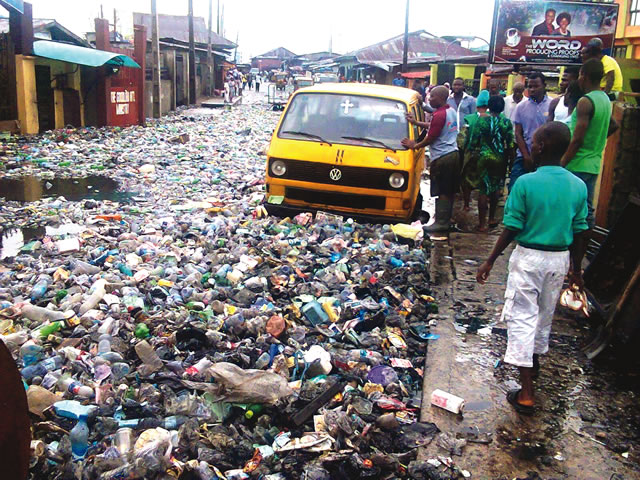A coalition of German companies has formalized a significant investment of €40 million aimed at enhancing waste treatment infrastructure in Lagos State, Nigeria. The agreement, finalized during the 11th German-Nigerian Business Forum, is expected to curb carbon dioxide emissions by over 1.5 million tonnes annually for the next 15 years, addressing an urgent environmental concern. Facilitated by the German government through its export credit insurance body, the deal received the backing of the Lagos State Government and underscores the potential for sustainable development in waste management strategies.
Key stakeholders in the project include Zoomilion Nigeria Limited, FIMA Industries Germany, FAUN Kirchhoff Gruppe, and the Jospong Group of Companies. The agreement encompasses the construction of three advanced solid waste recycling plants and the acquisition of waste collection trucks from Germany. Haidar Said, Executive Director of Jospong Group, emphasized that this investment represents a pivotal advancement in Lagos State’s approach to waste management. The initiative is designed to tackle the increasing challenges associated with waste disposal by enhancing recycling capabilities, thereby directly contributing to lower carbon emissions in the region.
Said further noted that over the next 12 to 24 months, the Jospong Group intends to invest an additional $200 million in Lagos State’s waste management sector. This broader investment plan aims to encompass every aspect of the waste management cycle, from supporting waste collectors to establishing crucial transfer stations, recycling plants, and engineered landfill management systems. This comprehensive approach not only targets immediate waste management improvements but also anticipates sustainable growth in the sector, leading to long-term environmental benefits.
Markus Maierhofer, CEO of FIMA Industries Germany, affirmed that his company would deliver over €30 million’s worth of mechanical and biological waste treatment plants specifically designed to optimize waste processing and minimize environmental impacts. In addition, an investment of around €10 million is earmarked for waste collection vehicles, significantly upgrading the logistics of waste management in Lagos. These advancements promise to reduce the volume of waste that ends up in landfills, thereby promoting recycling and the creation of eco-friendly materials, such as compost.
Lucas Dörr, Head of Export Business Development at FAUN Kirchhoff Group, expressed that the deal is poised to transform the circular economy within Lagos State. The agreement, which spans over a period of 15 years, will focus on enhancing recycling efforts and waste collection logistics, thereby creating a more sustainable waste management framework in the area. This initiative is not just about improving existing systems but is fundamentally about establishing a more resilient and ecologically sound approach to waste management that could serve as a model for other regions.
During the forum, Lagos State Governor Babajide Sanwo-Olu, represented by the Special Adviser on Climate Change and Circular Economy, Titilayo Oshodi, underscored the importance of the ongoing partnership with the German government in aiding the state’s economic and environmental objectives. Sanwo-Olu noted that such collaborations are crucial for meeting the state’s climate goals while fostering job creation and economic empowerment. He highlighted the success of initiatives arising from the collaboration between the German-Nigerian Chamber of Commerce and the German government, emphasizing their role in developing new markets and providing essential technical support to stakeholders engaged in waste management and material recovery. This partnership promises not only to alleviate Lagos’s waste management challenges but also to establish a sustainable and economically beneficial infrastructure that could serve as a benchmark for future initiatives.














